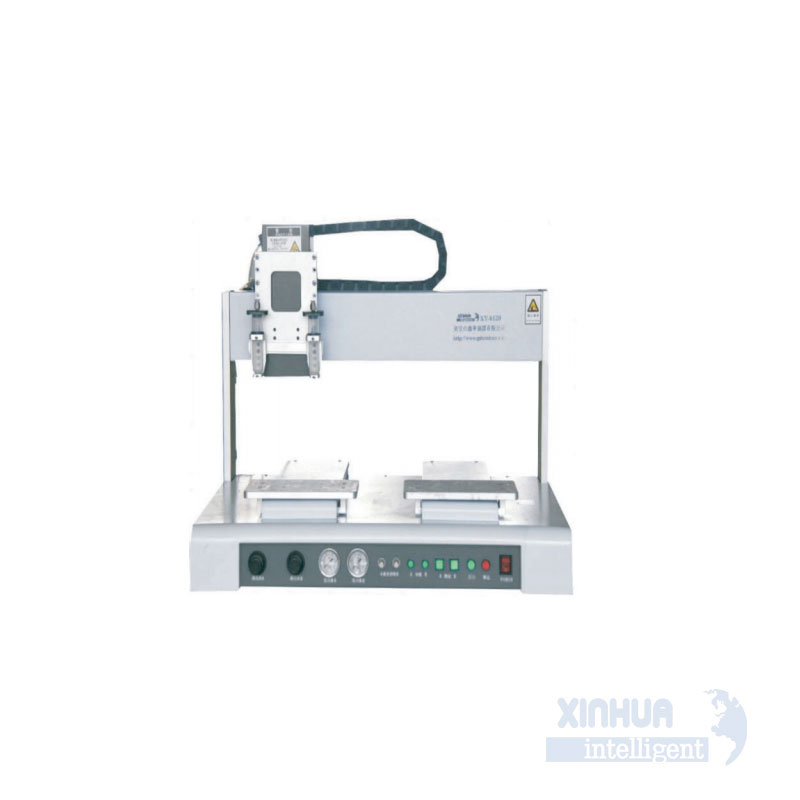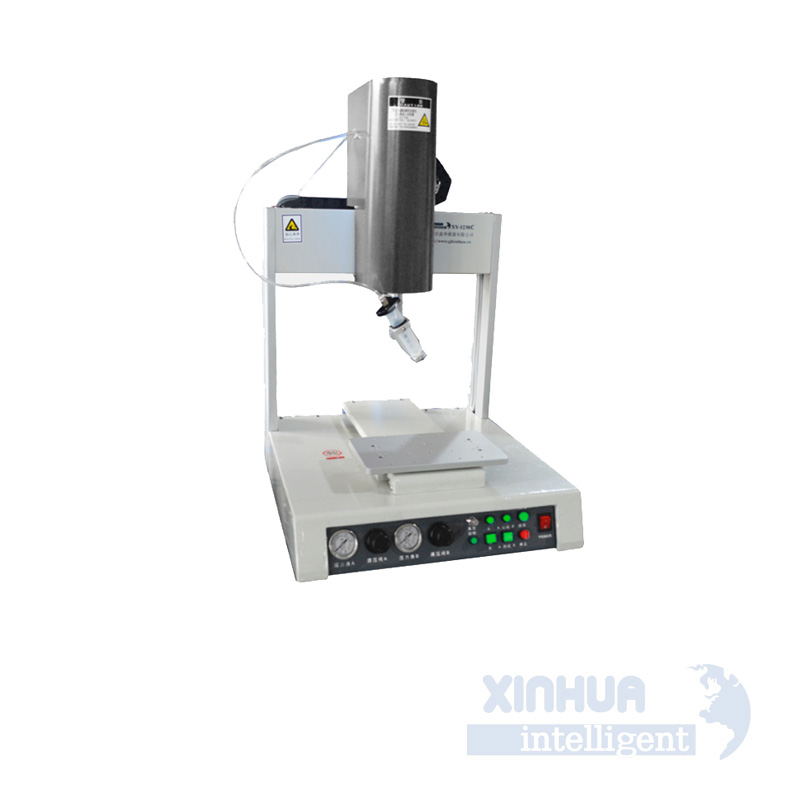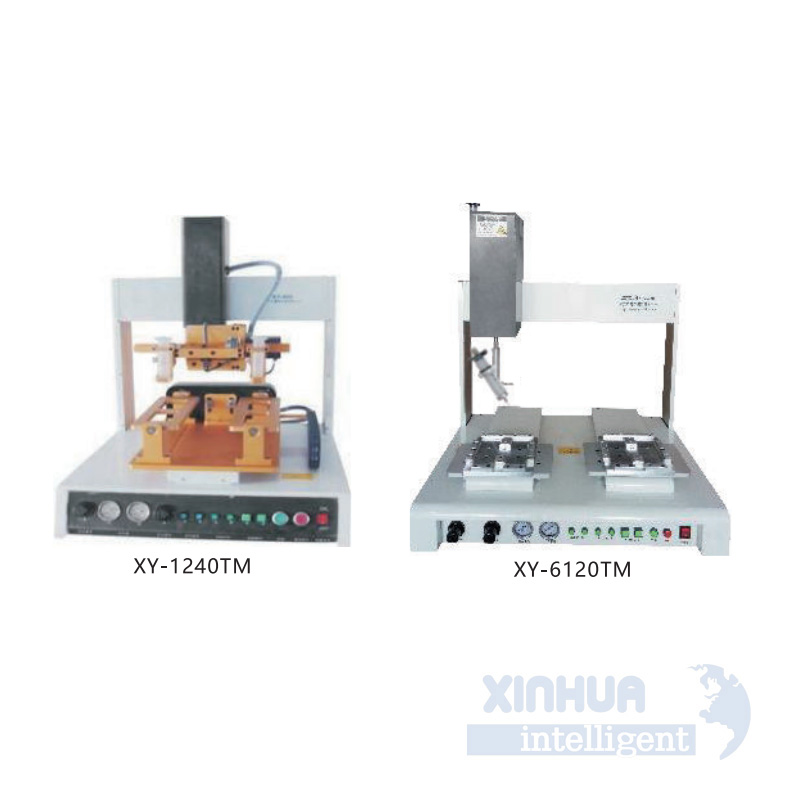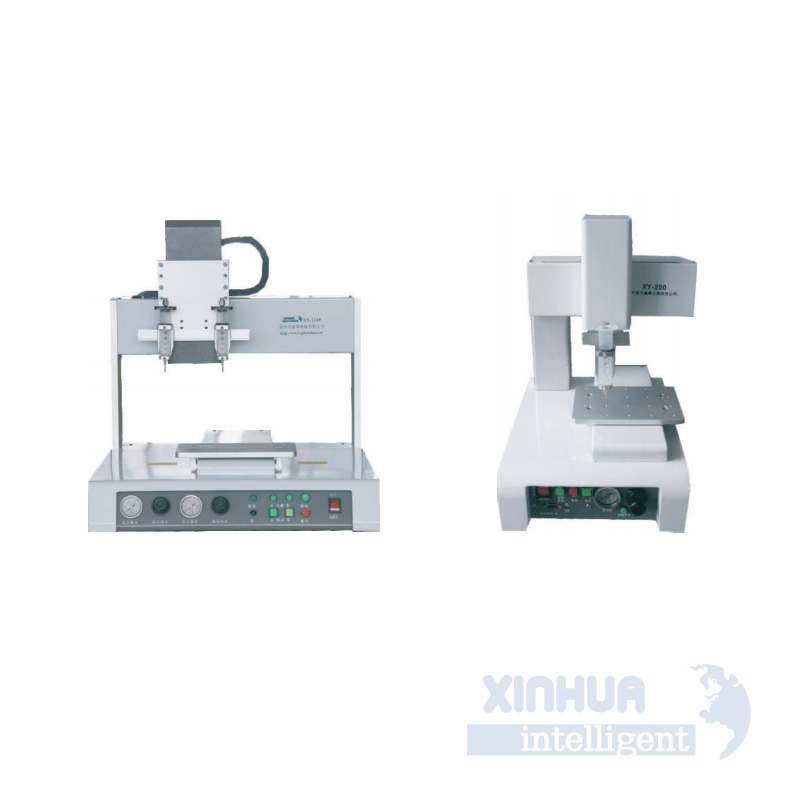
Speaker Glue Dispenser Machine: Revolutionizing Assembly Processes
In today’s fast-paced manufacturing environment, precision and efficiency are paramount. The production of speakers, a key component in audio systems ranging from smartphones to home theaters, demands meticulous assembly processes. One critical step in speaker manufacturing is the application of adhesive, ensuring components like diaphragms, voice coils, and frames remain securely bonded. Enter the speaker glue dispenser machine—a sophisticated piece of equipment designed to automate this crucial process. This article delves into the common challenges faced in adhesive application, explores practical and technical solutions provided by these machines, highlights real-world applications, and concludes with a call-to-action encouraging readers to explore Xinhua Intelligent‘s offerings.
—
1. Common Pain Points or Challenges in Speaker Adhesive Application
The manual application of adhesive in speaker assembly presents several challenges that hinder productivity and quality:
A. Inconsistent Adhesive Distribution
Manual dispensing often leads to uneven adhesive distribution. Too much glue can cause overflow, resulting in waste and potential damage to delicate components. Conversely, insufficient adhesive compromises the bond strength, leading to product failure.
B. Human Error
Human operators may experience fatigue, leading to inaccuracies over long shifts. Variability in skill levels among workers also contributes to inconsistencies in the final product.
C. Time-Consuming Process
Hand-applying glue is labor-intensive and time-consuming, slowing down production lines. As demand for speakers increases, manufacturers need faster, more reliable methods to meet market expectations.
D. Safety Concerns
Handling adhesives manually exposes workers to harmful chemicals, posing health risks. Proper ventilation and protective gear are essential but add complexity to the operation.
E. Limited Customization
Manual processes struggle to adapt quickly to varying product designs or adhesive types. This rigidity limits flexibility in meeting diverse customer requirements.
Addressing these pain points requires innovative solutions that enhance accuracy, speed, and safety while reducing human intervention.
—
2. Practical and Technical Solutions: How Speaker Glue Dispenser Machines Help
Speaker glue dispenser machines offer a range of features tailored to overcome the challenges outlined above. Here’s how they provide practical and technical solutions:
A. Precision Control
These machines utilize advanced technologies such as pneumatic systems, stepper motors, and robotic arms to ensure precise control over adhesive flow. Parameters like pressure, speed, and volume can be fine-tuned to match specific application needs. For instance, a high-viscosity adhesive might require higher pressure settings, whereas a low-viscosity adhesive would need lower pressure to prevent splashing.
B. Automated Programming
Modern glue dispensers come equipped with user-friendly software interfaces that allow operators to program intricate patterns easily. Whether it’s a circular path around the speaker frame or a straight line along the edge, the machine executes the task with unparalleled accuracy. Pre-set programs reduce setup times and enable seamless transitions between different products.
C. Real-Time Monitoring and Feedback
Advanced models incorporate sensors and cameras for real-time monitoring of the dispensing process. Any deviations from the desired pattern or volume trigger alerts, enabling immediate corrections. This feature minimizes defects and ensures consistent quality across batches.
D. Versatility in Adhesive Types
Speaker glue dispenser machines support various adhesive formulations, including UV-cure, cyanoacrylate (super glue), epoxy, and silicone. Their modular design allows easy switching between nozzles and tips, accommodating different viscosities and curing methods.

E. Enhanced Safety Features
By automating the adhesive application process, these machines eliminate direct worker exposure to hazardous materials. Additionally, some models feature enclosed chambers or fume extraction systems to further safeguard employees.
F. Increased Throughput
Automation significantly boosts production rates compared to manual methods. With cycle times measured in seconds per unit, manufacturers can achieve higher output without compromising quality.
Overall, speaker glue dispenser machines represent a paradigm shift in adhesive application, offering reliability, flexibility, and cost-effectiveness.
—
3. Real-World Applications of Speaker Glue Dispenser Machines
The versatility of speaker glue dispenser machines makes them indispensable in various industries where audio components are manufactured. Below are some notable real-world applications:
A. Consumer Electronics
In the production of headphones, earbuds, and portable Bluetooth speakers, precise adhesive application is vital to ensure sound quality and durability. Glue dispensers help secure diaphragms to frames, attach magnets to voice coils, and seal enclosures against dust and moisture.
B. Automotive Industry
Car audio systems demand robust construction due to vibrations and temperature fluctuations. Speaker glue dispenser machines play a crucial role in bonding tweeters, midranges, and woofers within car stereos, guaranteeing optimal performance even under harsh conditions.

C. Professional Audio Equipment
High-end studio monitors and PA systems rely on accurate adhesive placement to maintain structural integrity and acoustic properties. These machines facilitate the assembly of large-format speakers used in concerts, theaters, and broadcasting studios.
D. Smart Home Devices
As smart devices like voice assistants and smart speakers gain popularity, manufacturers must balance miniaturization with functionality. Glue dispensers enable precise bonding of micro-components, ensuring sleek designs without sacrificing performance.
E. Medical Devices
Although not directly related to traditional speakers, certain medical devices employ similar principles of sound transmission, such as hearing aids and ultrasonic transducers. Adhesive application here requires utmost precision, which only automated systems can deliver consistently.
Each of these applications underscores the importance of integrating speaker glue dispenser machines into modern manufacturing workflows. By doing so, companies can enhance product quality, reduce costs, and improve overall competitiveness.
—
4. Conclusion: Why Choose Xinhua Intelligent?
In conclusion, speaker glue dispenser machines have become an essential tool for manufacturers seeking to streamline their adhesive application processes. They address common pain points such as inconsistency, inefficiency, and safety concerns through advanced automation and precision engineering. From consumer electronics to automotive and professional audio, these machines find widespread use across industries, driving innovation and improving product quality.
If you’re looking to upgrade your manufacturing capabilities, consider partnering with Xinhua Intelligent, a leader in industrial automation solutions. Xinhua Intelligent offers state-of-the-art speaker glue dispenser machines designed to meet the unique needs of your business. Their expert team provides comprehensive support, from initial consultation to installation and ongoing maintenance, ensuring seamless integration into your production line.
Take the first step toward transforming your operations—contact Xinhua Intelligent today to learn more about their cutting-edge technology and how it can benefit your organization. Embrace the future of adhesive application and stay ahead of the competition!

